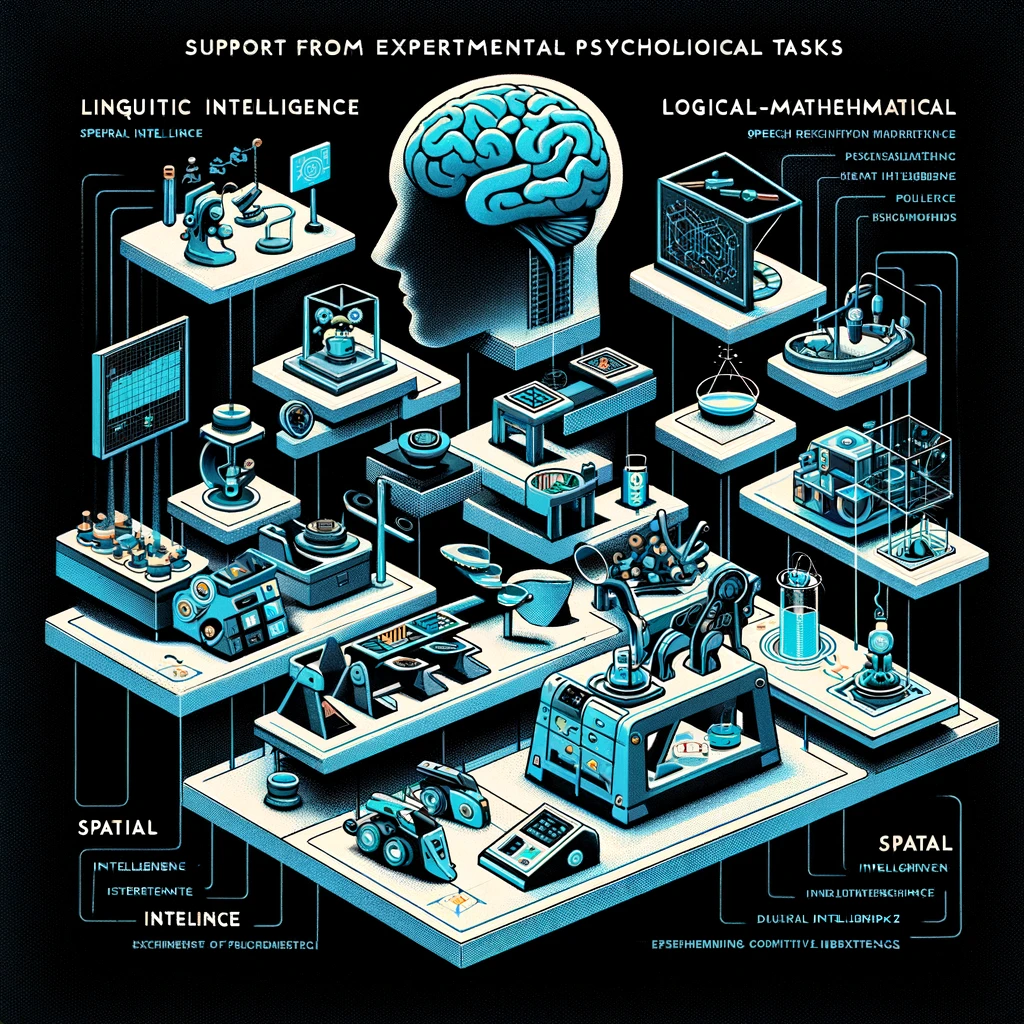baumhaus.digital/Art, Cognition, Education/Human and arti(ficial|stic) intelligence/Session 3 :: Form(s) of intelligence/Theory of Multiple Intelligences/Defining criteria of an intelligence/Support from Experimental Psychological Tasks
For an ability to be considered an intelligence in Theory of Multiple Intelligence framework, it must be supported by empirical research, particularly through experimental psychological tasks. These tasks should demonstrate the operations and capabilities of the intelligence in question. For instance, tests of musical intelligence might involve discerning pitch or rhythm, while spatial intelligence could be evaluated through tasks involving mental rotation or spatial judgment. The ability to measure and observe these intelligences in controlled experimental settings lends scientific credibility to the concept of multiple intelligences.

0 Axones
[Impressum, Datenschutz, Login] Other subprojects of wizzion.com linkring:
baumhaus.digital
fibel.digital
kyberia.de
giver.eu
naadam.info
teacher.solar
udk.ai
refused.science
gardens.digital
puerto.life